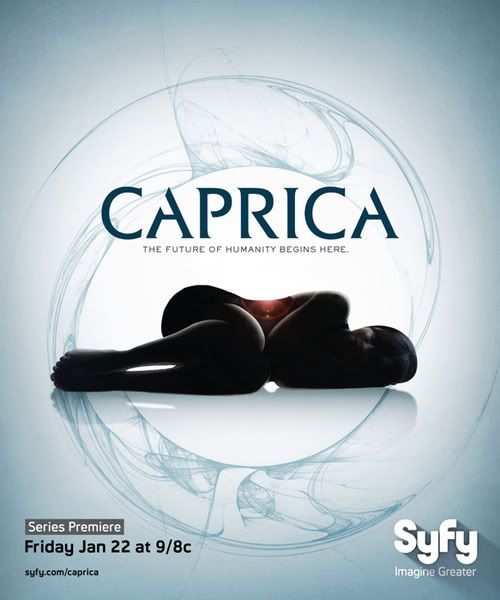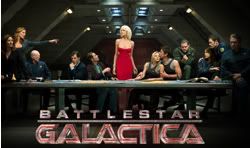SCi Fi That Soars
Sun 8th Jan
BY RON MOORE
From Wall Street Journal:
1. "Stranger in a Strange Land" by Robert Heinlein (Putnam, 1961). In part a retelling of the Christ story as seen through a science-fiction prism, this sprawling social commentary tells the story of Valentine Michael Smith, a son of human colonists lost in the first manned flight to Mars. Raised by Martians, Michael has been returned to Earth, before whose society, and foibles, he stands uncomprehending. Soon enough, he is a victim. It says something about the complexity and intellectual edge of "Stranger in a Strange Land" that it remains one of the few science-fiction classics to have escaped adaptation by the movie industry. The book is very much of its time, the 1960s, in the way its central story of Valentine's reintegration into human society challenges organized religion and gender roles. Not to mention its embrace of those swinging '60s themes, free love and group sex. An emblem of this book's influence: the word "grok"--Martian for complete, instinctive understanding--has entered the language and a dictionary or two.
2. "Foundation" by Isaac Asimov (Gnome, 1951). This is simply the first volume of a trilogy that brought together the massive series of "Foundation" stories that Isaac Asimov began writing in the 1940s. A heady blend of speculative fiction and epic storytelling spanning literally hundreds of thousands of years, the saga concerns the huge and prosperous Galactic Empire. At the center of it all is psycho-historian Hari Seldon, whose mathematical calculations predict the future fall of the empire, to be followed by a 30,000-year dark age before a new civilization emerges. To safeguard its knowledge through those hellish centuries, the empire allows Seldon to establish a small outpost, a foundation, which grows large, thanks to its command of technology and learning of all kinds. Mr. Asimov's lucid prose and extravagant imagination ensures that if you read this book, you'll go on to read the entire trilogy.
3. "Dune" by Frank Herbert (Ace, 1965). The world depicted here by Frank Herbert is as richly textured and detailed as J.R.R. Tolkien's "Rings" triology, to which this novel has been compared. Set in an outer-space empire many thousands of years into the future, the plot is structured around the combat between powerful families vying for political control. Mr. Herbert portrays every aspect of the galaxy culture--the warring noble houses and the characters and societies they represent--with a particularity that makes them unforgettable. This was the book that made me realize that science-fiction could be more than ray guns, rugged heroes and wacky sidekicks.
4. "Dragonflight" by Anne McCaffrey (Ballantine, 1968). The first book of Ms. McCaffrey's wildly popular "Dragonriders of Pern" series introduces a world that appears, at first glance, to be a product of the purest traditional fantasy--a place where majestic dragons sweep the skies above medieval castle holds. In fact, it is a meticulously constructed science-fiction universe. The heroine is Lessa, who lives in servitude on the planet Pern, colonized long ago by humans. She goes off to the place of the great dragons, where she learns to ride and commune with the creatures. Now dismissed as burdens on society, the dragons are no longer revered as saviors of the planet in a long-ago battle. Soon they will be needed again. Don't look for slash-and-burn dragon warfare here or anything hard-edged. The pleasures of this work are to be found in Ms. McCaffrey's lyrical style.
5. "I Have No Mouth & I Must Scream" by Harlan Ellison (Pyramid, 1967). The short story that gives this collection its title is one of the most frightening works you're likely to encounter. The tone is set with the opening line: "Limp, the body of Gorrister hung from the pink palette; unsupported--hanging high above us in the computer chamber; and it did not shiver in the chill, oily breeze that blew eternally through the main cavern." This is a tale of five humans trapped within the belly of a supercomputer, called AM, which has managed to wipe out everyone in the world but these five, whom it relishes tricking and torturing. Mr. Ellison's prose here is like the machine he envisions: a peerless force.
Mr. Moore is creator and executive producer of the Sci Fi Channel's "Battlestar Galactica" series.
Friday, January 20, 2006
Ron Moore's favorite SF books
Subscribe to:
Post Comments (Atom)






No comments:
Post a Comment